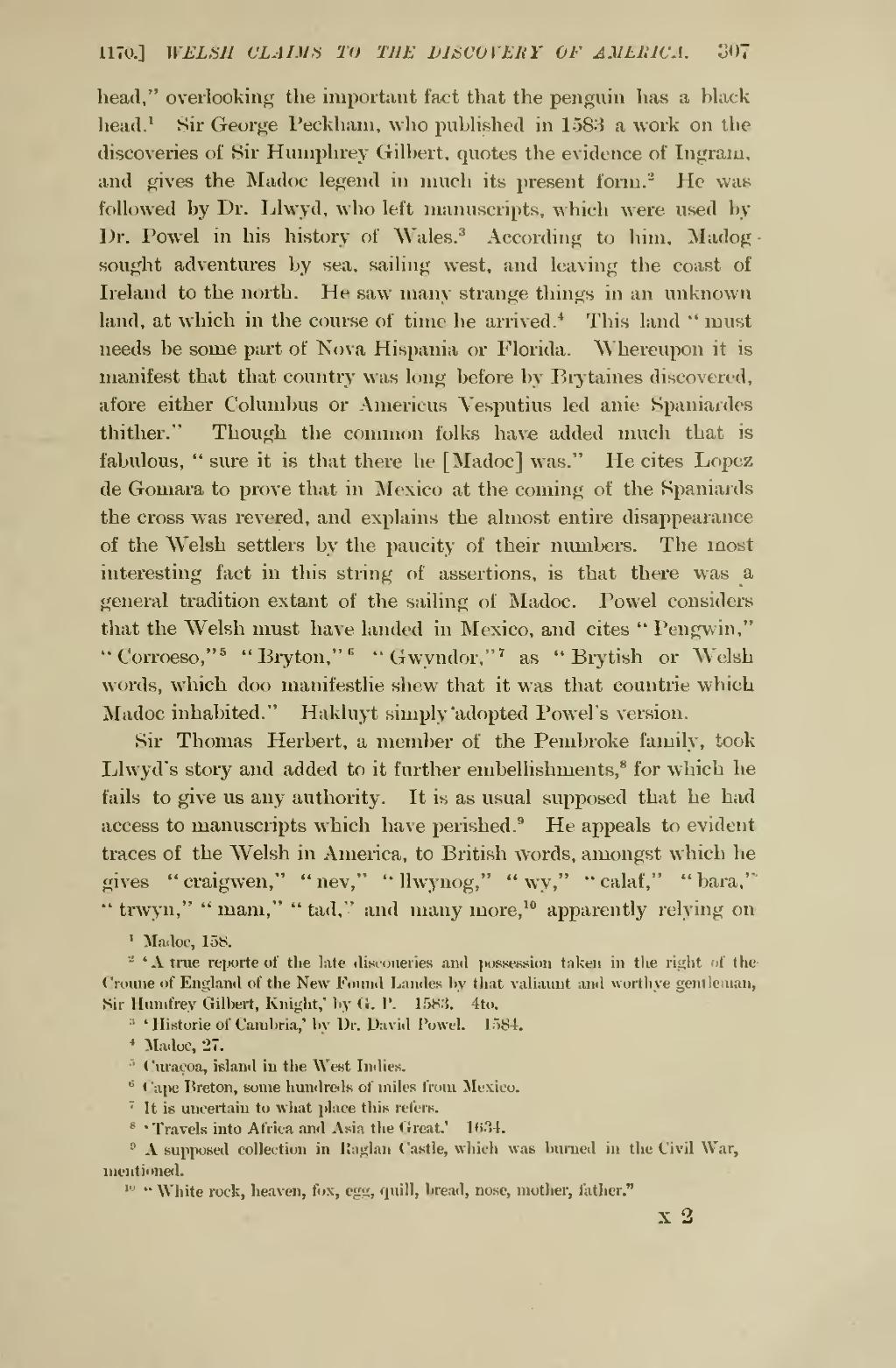head," overlooking the important fact that the penguin has a black head.[1] Sir George Peckham, who published in 1583 a work on the discoveries of Sir Humphrey Gilbert, quotes the evidence of Ingram, and gives the Madoc legend in much its present form.[2] He was followed by Dr. Llwyd, who left manuscripts, which were used by Dr. Powel in his history of Wales.[3] According to him, Madog sought adventures by sea, sailing west, and leaving the coast of Ireland to the north. He saw many strange things in an unknown land, at which in the course of time he arrived.[4] This land "must needs be some part of Nova Hispania or Florida. Whereupon it is manifest that that country was long before by Brytaines discovered, afore either Columbus or Americus Vesputius led anie Spaniardes thither." Though the common folks have added much that is fabulous, "sure it is that there he [Madoc] was." He cites Lopez de Gomara to prove that in Mexico at the coming of the Spaniards the cross was revered, and explains the almost entire disappearance of the Welsh settlers by the paucity of their numbers. The most interesting fact in this string of assertions, is that there was a general tradition extant of the sailing of Madoc. Powel considers that the Welsh must have landed in Mexico, and cites "Pengwin," "Corroeso,"[5] "Bryton,"[6] "Gwyndor,"[7] as "Brytish or Welsh words, which doo manifestlie shew that it was that countrie which Madoc inhabited." Hakluyt simply adopted Powel's version.
Sir Thomas Herbert, a member of the Pembroke family, took Llwyd's story and added to it further embellishments,[8] for which he fails to give us any authority. It is as usual supposed that he had access to manuscripts which have perished.[9] He appeals to evident traces of the Welsh in America, to British words, amongst which he gives "craigwen," "nev," "llwynog," "wy," "calaf," "bara," "trwyn," "mam," "tad," and many more,[10] apparently relying on
- ↑ Madoc, 158.
- ↑ 'A true reporte of the late discoueries and possession taken in the right of the Croune of England of the New Found Landes by that valiaunt and worthye gentleman, Sir Humfrey Gilbert, Knight,' by G. P. 1583. 4to.
- ↑ 'Historie of Cambria,' by Dr. David Powel. 1584.
- ↑ Madoc, 27.
- ↑ Curaçoa, island in the West Indies.
- ↑ Cape Breton, some hundreds of miles from Mexico.
- ↑ It is uncertain to what place this refers.
- ↑ 'Travels into Africa and Asia the Great.' 1634.
- ↑ A supposed collection in Raglan Castle, which was burned in the Civil War, mentioned.
- ↑ "White rock, heaven, fox, egg, quill, bread, nose, mother, father."

